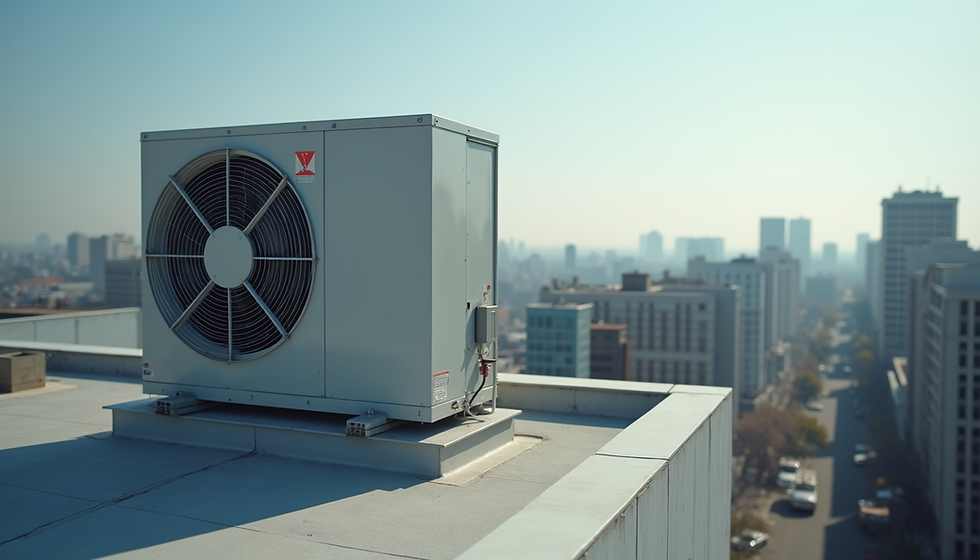24/7 Emergency HVAC Services for Businesses
- Oct 27, 2025
- 4 min read
When a commercial HVAC system fails, the impact on business operations can be immediate and severe. Maintaining a comfortable and safe environment is crucial for productivity, customer satisfaction, and employee well-being. This is why having access to reliable 24/7 emergency HVAC solutions is essential for any business. In this article, we will explore the importance of round-the-clock HVAC services, how to prepare for emergencies, and practical steps to minimize downtime.
Why Emergency HVAC Solutions Are Critical for Businesses
Commercial properties rely heavily on HVAC systems to regulate temperature, humidity, and air quality. A sudden breakdown can disrupt daily operations, cause equipment damage, and even pose health risks. Here are some reasons why emergency HVAC services are indispensable:
Minimize Business Disruption: A malfunctioning HVAC system can force businesses to close temporarily, leading to lost revenue.
Protect Equipment and Inventory: Certain products and machinery require controlled environments to prevent damage.
Ensure Employee and Customer Comfort: Maintaining a comfortable atmosphere is vital for morale and customer experience.
Comply with Health and Safety Regulations: Proper ventilation and air quality are often mandated by law.
Having access to emergency HVAC services means that businesses can quickly address issues, reducing downtime and avoiding costly repairs.

Commercial HVAC units require regular maintenance and quick emergency repairs to ensure continuous operation.
How Emergency HVAC Solutions Work
Emergency HVAC services are designed to provide immediate assistance whenever a system fails, regardless of the time or day. Here’s how these services typically operate:
24/7 Availability: Technicians are on call around the clock to respond to urgent HVAC issues.
Rapid Response Time: Quick dispatch ensures that problems are addressed before they escalate.
Comprehensive Diagnostics: Experts assess the root cause of the failure using advanced tools.
On-the-Spot Repairs: Many repairs can be completed immediately to restore functionality.
Temporary Solutions: If a full repair is not possible immediately, temporary fixes keep the system running until permanent repairs can be made.
Businesses benefit from this approach by minimizing the impact of HVAC failures and maintaining operational continuity.
What is the $5000 rule for HVAC?
The $5000 rule is a practical guideline used by many commercial property managers and business owners to decide whether to repair or replace an HVAC system. It states:
If the cost of repairing an HVAC system exceeds $5000, it is often more cost-effective to replace the unit.
This rule helps avoid repeated costly repairs and improves energy efficiency with newer systems.
It also factors in the age of the equipment, expected lifespan, and potential savings on utility bills.
For example, if a 15-year-old HVAC unit requires a $6000 repair, investing in a new system might be a better long-term decision. Newer models often come with advanced technology that reduces energy consumption and maintenance needs.
Preparing Your Business for HVAC Emergencies
Preparation is key to minimizing the disruption caused by HVAC failures. Here are actionable steps businesses can take:
Regular Maintenance: Schedule routine inspections and tune-ups to catch issues early.
Create an Emergency Plan: Develop a clear protocol for reporting HVAC problems and contacting emergency services.
Keep Spare Parts: Stock essential components like filters, belts, and thermostats for quick replacements.
Train Staff: Educate employees on basic troubleshooting and emergency procedures.
Partner with a Trusted Service Provider: Establish a relationship with a reliable HVAC company that offers emergency 24/7 support.
By implementing these measures, businesses can reduce the risk of unexpected breakdowns and ensure a swift response when emergencies occur.

HVAC technicians perform detailed inspections to prevent emergencies and ensure system reliability.
Choosing the Right Emergency HVAC Service Provider
Selecting a dependable emergency HVAC service provider is crucial for effective problem resolution. Consider the following factors:
Experience and Expertise: Look for companies with a proven track record in commercial HVAC systems.
Availability: Confirm that they offer true 24/7 emergency services.
Response Time: Ask about average response times and how quickly they can dispatch technicians.
Certifications and Licensing: Ensure the provider meets industry standards and local regulations.
Customer Reviews and References: Check feedback from other commercial clients.
Transparent Pricing: Understand their pricing structure for emergency calls and repairs.
A reputable provider will not only fix issues promptly but also offer advice on system upgrades and preventive maintenance.
For businesses seeking reliable support, emergency 24/7 hvac service commerical is a valuable resource that combines expertise with rapid response capabilities.
Enhancing Business Resilience with Innovative HVAC Technology
Modern HVAC technology offers solutions that improve system reliability and reduce emergency incidents. Some innovations include:
Smart Thermostats and Controls: Enable remote monitoring and adjustments to optimize performance.
Predictive Maintenance Tools: Use sensors and data analytics to detect potential failures before they happen.
Energy-Efficient Equipment: Lower operating costs and reduce environmental impact.
Zoning Systems: Allow precise temperature control in different areas, improving comfort and efficiency.
Investing in these technologies not only enhances comfort but also strengthens a business’s ability to handle HVAC emergencies effectively.
Final Thoughts on Emergency HVAC Solutions for Businesses
Reliable HVAC systems are the backbone of comfortable and safe commercial environments. Unexpected failures can cause significant disruptions, but with the right preparation and access to 24/7 emergency services, businesses can minimize downtime and protect their investments.
Implementing regular maintenance, having a clear emergency plan, and partnering with a trusted service provider are essential steps. Additionally, embracing innovative HVAC technologies can further reduce risks and improve operational efficiency.
By prioritizing these strategies, businesses can ensure they are ready to face any HVAC emergency with confidence and resilience.





Comments